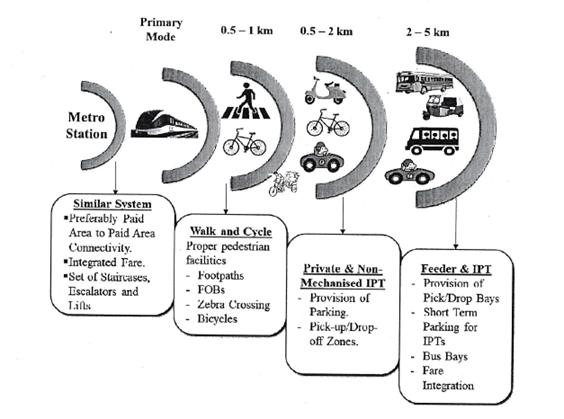Ministry of Housing & Urban Affairs
Cabinet approves two corridors of Bangalore Metro Rail Project Phase-3 project for 44.65 km with 31stations
The total project completion cost of Phase-3 is Rs.15,611 crore to be operational by 2029
Corridor-1 from JP Nagar 4th Phase to Kempapura along Outer Ring Road West for a length of 32.15 Km with 21 stations
Corridor-2 from Hosahalli to Kadabagere along Magadi Road for a length of 12.50 Km with 9 stations
Bengaluru city to have a Metro Rail Network of 220.20 Km
Direct connectivity to Airport and Outer Ring Road East as a continuous ring connecting major IT clusters and connectivity to various parts of the city
Posted On:
16 AUG 2024 8:12PM by PIB Delhi
The Union Cabinet, chaired by the Prime Minister Shri Narendra Modi, today approved the Phase-3 of Bangalore Metro Rail Project with two elevated corridors for a length of 44.65 Km with 31 stations.Corridor-1 from JP Nagar 4thPhase to Kempapura (along Outer Ring Road West) for a length of 32.15 Km with 22 stations and Corridor-2 from Hosahalli to Kadabagere (along Magadi Road) for a length of 12.50 Km with 9 stations.
On operationalization of Phase-3, Bengaluru city will have 220.20 Km of active Metro Rail Network.
The total completion cost of the project is Rs.15,611 crore.
Benefits of the Project:
The Phase-3 of Bangalore Metro Rail Project represents a significant advancement in the city's infrastructure development. Phase-3 acts as a major expansion of the Metro Rail Network in the city.
Enhanced Connectivity:
Phase-3 will add approximately 44.65 Km of new metro lines, connecting the western part of the city of Bengaluru that were previously underserved. Phase-3 will integrate key areas of the city which includes Peenya Industrial Area, IT industries on Bannerghatta road and Outer Ring Road, Textile and Engineering items Manufacturing units on Tumkuru Road and ORR, Bharat Electronics Limited (BEL), Major educational institutions like PES University, Ambedkar College, Polytechnic College, KLE College, Dayanandsagar University, ITI etc. Phase-3 corridors also provide connectivity to the Southern part of the city, Outer Ring Road West, Magadi road and various neighbourhoods, enhancing overall connectivity in the city. Improved last mile connectivity to commercial centres, industrial hubs, educational institutions, and healthcare facilities will facilitate better access for residents.
Reduction in Traffic Congestion:
Metro Rail as an efficient alternate road transport and with Phase-3 as an extension to the Metro Rail network in the Bengaluru city is expected to alleviate traffic congestion and will be particularly impactful on heavily congested routes of the Outer Ring Road West, Magadi road and other major arterial roads of the city. Reduction in road traffic can lead to smoother movement of vehicles, reduction in travel time, increasing overall road safety etc.
Environmental Benefits:
The addition of Phase-3 Metro Rail Project and increase in overall Metro Rail Network in Bengaluru city, can significantly reduce carbon emissions compared to traditional fossil fuel-based transport.
Economic Growth:
Reduced travel times and improved access to different parts of the city can enhance productivity by allowing individuals to reach their workplaces more efficiently. The construction and operation of Phase-3 will generate numerous jobs in various sectors, from construction workers to administrative staff and maintenance personnel. Also, the enhanced connectivity can stimulate local businesses, especially in areas near new metro stations which can also attract investment and development in previously less accessible regions.
Social Impact:
The expansion of Phase-3 Metro Rail network in Bengaluru will provide more equitable access to public transport, benefiting diverse socio-economic groups and reducing transport disparities which will contribute to a higher quality of life by reducing commute times and improving access to essential services.
Multi-Modal Integration& Last Mile Connectivity:
Multi-Modal Integration is planned at 10 locations at JP Nagar 4th Phase, JP Nagar, Kamakya, Mysore Road, Sumanahalli, Peenya, BEL Circle, Hebbal, Kempapura, Hosahalli and provides interchanges with existing and under construction Metro Stations, BMTC Bus stands, Indian Railway Stations, proposed Suburban (K-RIDE) Stations.
All the Phase-3 stations are proposed with dedicated bus bays, Pick up and drop off bays, Pedestrian Paths, IPT/Auto Rickshaw stands. BMTC is already running feeder buses to the operational metro stations and the same will be extended to the Phase-3 stations also. Parking facilities have been provided at 11 important stations. The existing stations of Phase-1 & Phase-2 are integrated with proposed stations of Phase-3.Direct connectivity through FoBs/Skywalks to two Railway stations (Lottegollahali and Hebbal). At Phase-3 metro stations, provision for bikes and cycles sharing facility has also been provided.

*****
MJPS/BM/SKS
(Release ID: 2046081)
Visitor Counter : 4224